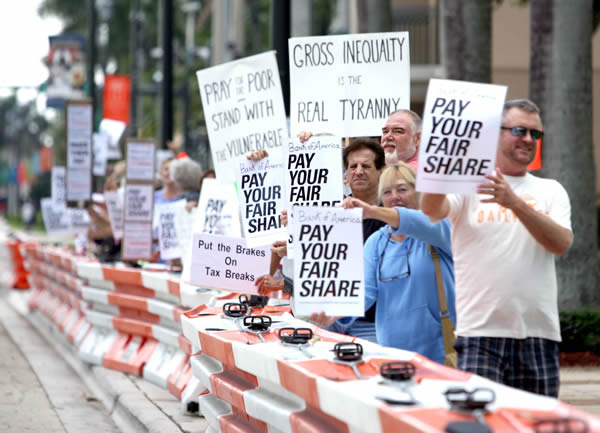No one likes tax increases, right? Not quite. Government unions do.
In California, government unions recently postponed their contract negotiations until after a vote on an initiative that would hike taxes. The unions support the initiative, and they don’t want their new contracts to cause Californians to vote no.
Their concern is understandable. Heritage senior policy analyst Jason Richwine estimates that on average government employees in the state make 30 percent more than their private sector counterparts. The minimum retirement age for most government employees in California is 50. To maintain this, unions want—and need—more taxes.
Similarly, in Nevada, government unions are spearheading a ballot initiative that would hike business taxes. According to reports:
The group [Nevada AFL-CIO] will push forward to collect the 72,352 signatures by November 13 to take the tax proposal to the 2013 Legislature.… The proposed tax, which would be assessed on net business profits in excess of $500,000 at a rate of 2 percent, has been projected by some analysts to bring in about $1 billion a year to the state general fund.
Raising business taxes in a weak economy costs private-sector jobs—but that does not deter government unions. Higher taxes still means more for them.
In Massachusetts, unions are pushing for a $1.37 billion tax hike. They want to raise the state income tax to almost 6 percent. As the spokesman for a coalition of government unions complained, Massachusetts does “not have a revenue system that is bringing in enough revenue.” But has a government union ever concluded that a tax system brought in too much revenue? Government employees in Massachusetts, of course, can start collecting pensions at age 55.
Tax increases hurt the economy. They cost jobs. They take money out of taxpayers’ pockets. But they (usually) mean more money for the government—where most union members now work. Small wonder, then, that the union movement campaigns so heavily for them.
































19 Replies to “Why Unions Want Higher Taxes”